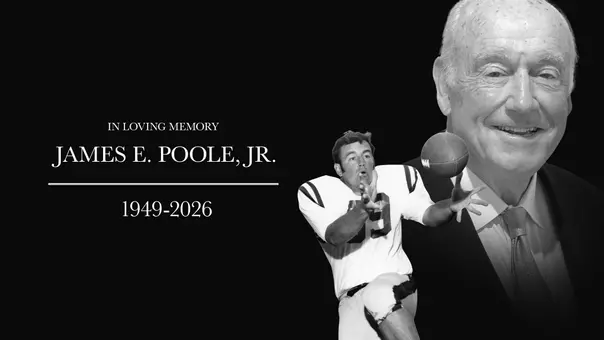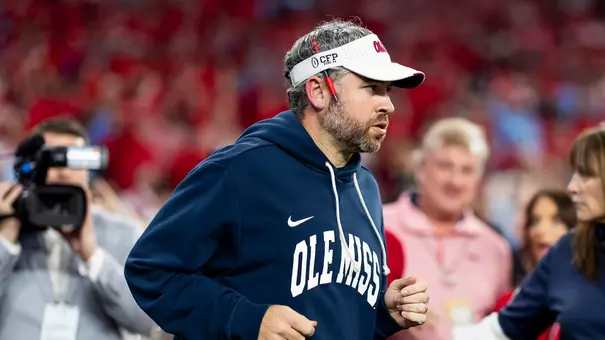The University of Mississippi Athletics
Ole Miss Among Schools Investing In Academic Success
12/19/2008 | Football
EDITOR'S NOTE - As college football's bowl season begins, players have benefited from individual academic attention that wasn't available a decade ago. Toughened NCAA regulations have prompted schools to spend heavily on academic help for athletes, and graduation rates have gone up. The Associated Press surveyed schools about their spending on athletes and reports its findings in this story.
By CHRIS TALBOTT Associated Press WriterOXFORD, Miss. (AP) - From the moment he stepped on campus, 320-pound tackle Michael Oher seemed destined to be a star on Ole Miss' football team and a failure in its classrooms.
Oher was the son of a crack-addicted single mom, and as a teen could barely read. His educational record - 11 schools in nine years as he moved from home to home in Memphis - read like an indictment of a failed education system.
But four years later, Oher has cleared every hurdle and nearly earned his degree - the only barrier to graduation is the upcoming NFL draft.
"I haven't struggled a bit in college,'' the standout offensive lineman says. "It's been a breeze.''
It's a tribute to Oher's determination and character, to be sure.
His story also says something about the state of big-time college athletics.
Like a lot of other athletes at Ole Miss and elsewhere, Oher got not only tutoring help but a full range of academic support services throughout his career. At Ole Miss, 14 full-time staffers line up tutors for student-athletes, help them choose classes, monitor study halls and check attendance. Athletes at Ole Miss averaged about 1,000 tutoring sessions a week this fall.
Such services are not unusual. The last five years have seen an astounding jump in the time, money and resources spent on academic support for student-athletes. Tougher regulations instituted by the NCAA now punish schools for poor academic performance, fueling a major spending binge with private and public funds on tutorial staff and athletes-only facilities filled with study rooms and computer labs.
The developments have been hailed by the NCAA. And yet faculty are disturbed by what they see as a shift that puts athletes ahead of other students.
Before the first kickoff this football season, The Associated Press began a survey of the 65 schools from the six major conferences plus independent Notre Dame involved in the Bowl Championship Series. The AP eventually obtained at least some financial information from 45 schools about the resources they devote to graduating athletes.
The picture formed by the data is one of schools frequently spending more than $1 million annually on academic support, with some spending hundreds of thousands of dollars more in 2008 than they did in 2004, the AP found. Eight BCS schools reported spending increases of more than 70 percent in the last five years. Four - South Florida, Illinois, Georgia and Kansas - increased spending by more than 100 percent.
Helping athletes graduate has become its own academic profession. A national group for people who work in the field has nearly doubled its membership to around 1,000 in just two years.
Glitzy academic support centers are popping up everywhere. Ole Miss opened a remodeled, 23,500 square-foot center a year ago that cost $5 million. South Carolina upped the ante with a groundbreaking ceremony for a $13-million facility.
Plans for a new, three-story center at Oregon include a reflecting pool. Oklahoma, with a 30,000 square-foot facility that cost between $7 million and $8 million, spent about $2.45 million helping all its athletes last year.
Florida, the Sooners' opponent in next month's football national championship game, spent $1.67 million. Texas ($1.90 million), Ohio State ($1.89 million), Kentucky ($1.86 million), Tennessee ($1.83 million) and Georgia ($1.77 million) are in the same league.
Athletics departments say if such facilities are extravagant, it only demonstrates their commitment to academic success. Even some critics of college sports agree that when schools recruit often underprepared students, and demand thousands of hours of practice and travel time, they owe them extra help. Sure enough, the changes have helped push NCAA graduation rates to record levels.
"Now, when I go around and speak on campuses and speak to coaches and athletic programs and to student-athletes, they want to brag about how well they're doing academically,'' NCAA president Myles Brand said. "They want to show me the academic study centers. The coaches want to talk about and brag about their APR (Academic Progress Report). All that is good. A few years ago, that was the last thing people wanted to talk about.
"It's changed the environment for athletics in so far as it takes seriously now academic progress and accomplishment. There's just no question about it.''
But there's also a range of criticism. Faculty have raised concerns about oversight, and the growing disparity between concierge-style academic support for athletes and what non-athletes receive.
They also claim the trend exacerbates the isolation of student-athletes - not just socially but educationally, too - in clusters of courses and majors where they are steered because of scheduling or perceived difficulty.
---
Advisers to athletes see their work differently. They consider themselves educators. And when they lay out the case in favor of a big investment in academic support, they note that the students they work with often are from disadvantaged backgrounds.
"I'm not saying a regular student is not coming from a single-parent home,'' said Ericka Lavender, an academic adviser to North Carolina State's football team. "But they're not having to get up at 4:30 in the morning and go all day, and still worry about whether their little brother or sister ate dinner or made it home from school.''
Several N.C. State advisers emphasized they do a lot more than line up tutors. They teach study skills, and offer career and personal advice. Increasingly, those in the field have graduate degrees in subjects like psychology and special education.
Many are former athletes, such as Natasha Criss, who works with Maryland's men's basketball team. When she came to Maryland as a track-and-field competitor in 1988 there were just four staffers working from cramped quarters in the old Cole Field House. Now she's one of the department's 15 full-time staffers working out of a sparkling corporate-like suite in Maryland's Comcast Center arena.
On a recent Friday, Criss watched the team finish a pre-game walkthrough at the Comcast Center and greeted several players as they left the floor, sharing hugs and laughing with them. But she's pushing them hard. In 2006, none of Maryland's four seniors left with a degree. All three seniors on last season's team graduated.
"She helps us pick our classes, she checks our classes. To be honest with you, our graduation rate is getting better because of her,'' said forward David Neal, the lone senior on this year's team. "She's hounding us to do our work, we have a mandatory study hall because of her. Her job is to make us graduate, and she's doing a great job of it.''
---
A sign on Karen Schiferl's wall at Ole Miss reads: "You can't fix stupid.''
Everyone else, however, can be helped.
A senior associate athletics director who runs the school's academic support operation, Schiferl and her staff see students with all kinds of needs. After assessing an athlete's learning style, they offer a variety of tools to help students keep pace - from simple major advising to more involved help allowed under the Americans with Disabilities Act, including the use of readers and note takers.
Schiferl and her employees are aware of the arguments that swirl around athletes' use of centers like the one at Ole Miss. They try to stay away from the debate and just assist each individual.
"We just have to help that kid as much as possible,'' Schiferl said. "What we really do, because of where things are, we have to compensate. We can't remediate. We can't make up for 19 years of not knowing. We have to figure out a way to sometimes compensate for that lack of knowledge.''
A handful of Ole Miss athletes come from some of the nation's poorest counties and don't have a rigorous education to begin with. Others never took learning seriously until forced to keep pace or lose eligibility. Schiferl says a key to improving athletes' lives going forward is teaching players good study habits and time management.
Peria Jerry, an Ole Miss defensive lineman who like Oher will likely be selected early in the NFL draft, says he didn't take high school seriously and was forced to go to prep school to qualify for college. Over time his view of learning changed.
"I enjoy it now,'' Jerry said. "It's really easier than I thought it was going to be. I mean, a little studying ain't going to hurt, it's only going to help you out. That's the way it is for the game. You've got to study film to see what the opponent's going to bring to the table, so it's basically all the same.''
---
AP education writer Justin Pope and AP sports writers Dave Ginsburg in College Park, Md., and Michael Marot in Indianapolis contributed to this report.










.png&width=32&height=32&type=webp)





